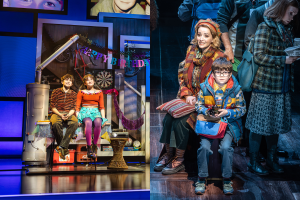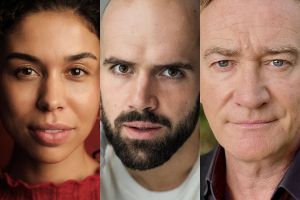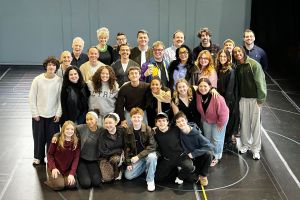Barney Norris: 'Brexit is the reason for all the rural plays around at the moment'
As Nightfall to open at the Bridge Theatre, playwright and novelist Barney Norris explains more about his play which tackles the subject grief
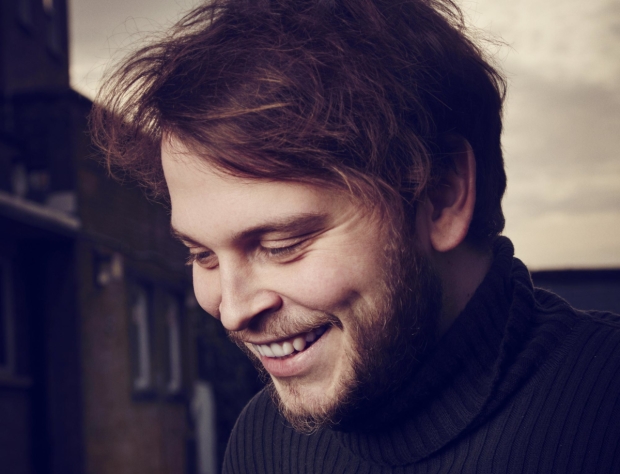
© Jay Brooks
Playwright and novelist Barney Norris broke onto the scene with his theatre company Up in Arms after they staged his play Visitors at the Arcola in 2014. The piece was a gentle, intense and supremely poignant look at old age and loneliness, performed by Linda Bassett and Robin Soans. It marked Norris as a young writer to watch and won him the Critics Circle Award for Most Promising Playwright. Since that point, Norris has written plays all based not far from where he grew up in Salisbury and, with director Alice Hamilton, pitched Up in Arms as a company that stages plays and tours them in rural settings. Now, as part of Nicholas Hytner's first season at the Bridge Theatre, Norris' new play Nightfall is being directed by Laurie Sansom. Following on from the theatre's promenade production of Julius Caesar, the piece is a four-person study of grief starring Claire Skinner and Ophelia Lovibond. Here Norris explains why it was hard for him to say yes to the commission and why he thinks rural is such a buzzword in theatre at the moment.
You're in rehearsals at the moment, do you enjoy the process?
It's an awful time. The play is quite front and centre about the corrosive nature of grief and that's come from a relatively personal place. So I am just reliving a lot of stuff I would have liked not to. But it's difficult because I couldn't have written the play if I hadn't been through all this crap. I also have a lot of self involvement that is boring for other people and upsetting for me. Last year I walked out of a tech week for a show. I came back, but I get very emotional.
Is it right that Nightfall is about grief?
It's a family in recovery from loss. This mother and her two children are living on a farm trying to hold together a way of life that existed up until the point when the father died. They are discovering whether that's possible, or even a healthy and emotionally safe thing to do. Into the mix comes this guy who is the daughter's ex, and the son's best mate, who comes back after having been away. Hilarity and tragedy ensue. It's about value systems and how you build the centre of a life.
And it has shadows of your own family?
I feel like I write quite well when I make it feel as much as possible like being with my family. So I put jokes in, and singing, there's crisps and nibbles and tea and narky rows. It's not just my biological family that I like trying to articulate – one of my plays was about a pub I worked in. We have lots of laughs in it and there are hits too – Sting's music, Everything But the Girl, George Michael, all my mum's music.
There seems to be a glut of plays with a rural setting, why do you think that is?
The simple answer is that there was this referendum and everyone who works in the subsidised arts was amazed to discover that not everyone agrees with them. Some people were commendably, if tragically up front about saying: ‘Yes we haven't bothered to represent those views for decades'. I think there's a sort of vulture tourism thing going on, where people go: 'How can we do a play that helps us to understand them a bit better? They like fields, let's do a play in a field'. It means some established artists are moving into writing about other worlds and some less established artists are getting a platform.
But your work and Up in Arms slightly preceeds all that…
I just had this lucky discovery of writing in my grandmother's voice [for Visitors]. And Linda Bassett is actually the reason why we ended up trying to focus on this territory. When Visitors transferred from the Arcola to the Bush she said she would do it on the condition that we went on a rural tour. So we did. When we were on it she said: 'I thought it would be good for you to spend time in this world. Maybe these are your people. You could be the rural writer'. That was Linda. She saw a thing I was good at and encouraged me and was kind. And this was before Brexit, so perhaps the trend wasn't there yet.
You've also published two novels, was the idea always to write fiction?
Yes. The reason I went into theatre first was because, although self publishing is coming on, publishing a book takes some work. Our first piece, before we'd actually formed the company, was called Missing, and we managed to hustle in with it. But the book took ages to get good enough. It was really bad for many years. I wrote the first draft at sixth form and then it came out when I was 28.
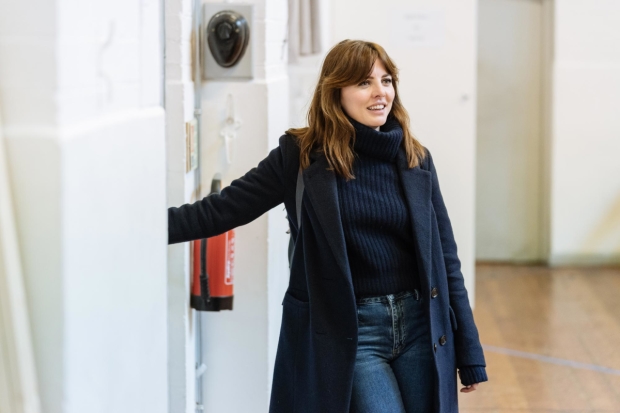
© Manuel Harlan
How did you come to be commissioned by Nicholas Hytner?
I don't think Nick had ever seen any of my plays, but David Sabel had read [my novel] Five Rivers and Nick then read it. And we had coffee.
Was that a fairly terrifying experience?
I find Nicholas Hytner an incredibly kind and generous man. He was the first person of that world – shall we say a massive star – who felt like a peer. There was a respect there, which was so enabling and inspiring. He just talked to me like I was a person. So often in the Big Dog's office you know you're just one of ten that year, or it's very cagey, but Nick was very straightforward and direct. Very honest.
And Nightfall is a sort of breaking away from Up in Arms…
Honestly, my choice would be to only ever write for Up in Arms. I want to be in an ensemble of people, and I would like them to be from as early in my life as possible. I went to school with Alice our co-artistic director, for example. And my mate from school did our posters. But Nick said: "Would you like to play to a bigger, different audience?" Up in Arms had hit this ceiling where we weren't going to move from a 200-seater to a 500-seater without all of us going away, doing our own different things for different organisations and bringing that back.
Did you feel huge pressure – because of the theatre it was in etc – when you were writing the play?
I feel the same amount of pressure and exposure artistically about every work. I can honestly say I felt less pressure on this one than on the first show of ours, which was at the Tristan Bates Theatre. If that had gone badly I would have been bankrupt. I wrote Nightfall between June and the following Jan. I think ultimately I delivered first, which is why I'm in the first season. I also started not sleeping every time Nick Hytner sent notes. I would essentially just not sleep until they were done. It became a good luck charm. But I've stopped doing that now, because I started doing it on another play and it led to bad work.
















